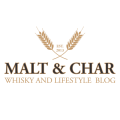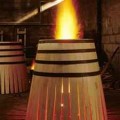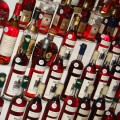Discussions
Bourbon - What's your favourite
2 59
Replies: page 2/2
Discussion search
I left out some other really fine choices in the previous entry: Elijah Craig 18 yr old, Elmer T. Lee, Baker's, Maker's 46, and Weller Antique 107 proof (I especially like the "old label" batch here).
14 years ago 0
There are so many good whiskies out there today and at really cheap prices considering all that goes into it. Some kid cooks you a steak in a restaurant-$30-40-you could do that at home yourself. Forget about the top shelf, start at the bottom and work your way into it. The standouts really stand out at that level. Some of my favorites in this category are: Old Grandad 86proof, Jim Beam Black 8 yr, Elijah Craig 12yr just of the ones that come to mind. I also would recommend Rittenhouse Rye 100 proof BIB which is richer and sweeter than most ryes and a bargain like all of these . They all go for $15-20 which is an incredible bargain considering all the skill, care and knowledge that goes into each of these whiskeys. I just paid $50 for dinner that was insultingly pretentious and a menu that was way above the skill level of the kitchen preparing it, and I left a 8 dollar tip!!!! When I open a bottle of good whisky that was 20 bucks or less, I feel as golden as the nectar flowing from it.
14 years ago 3Who liked this?
To @peatsmoker, on the subject of reasonably priced bourbons and ryes, here in Maryland, what used to be rye whiskey distillery country prior to Prohibition, and the state with the lowest hard liquor taxes in the USA, we can routinely get bottles of very enjoyable entry level rye whiskies like Old Overholt, Pikesville Spreme, and Beam Yellow Label, for $ 8.50- $ 10.00/bottle...and our shelves are overflowing with bourbons costing $ 6- 20. The irony here is that Maryland is a high tax state on everything else but liquor.
14 years ago 0
Thanks for the heads up DBK ! Looking forward to trying out a shot of Buffalo Trace. @ Victor , stop making me jealous... the sin taxes here are enough to make a whiskey loving guy cry ... and don't get me started on the choices available.
14 years ago 0
after reading the whole post I must say I would like to buy a bottle, the only problem it's the past experience with bourbon (Wild Turkey NAS) has been bad and I would not like to find myself with a 40 euro bottle of something I will never drink...I've seen Elijah Craig at the local liquor store, has anyone any suggestions to give? Maybe how to appreciate a good bourbon? I'm too much of a scotch lover
14 years ago 0
As @lucadanna1985, I'm also very much pleased with the attention this discussion is getting, especially as I'm not a bourbon drinker and I do not have any considerable experience with US whiskeys., I've only tried until now the unsurprising and mianstream alternatives (Jack Daniels No 7, Jim Beam White and Four Roses Yellow Label), mainly with coke or ginger ale, but I think this discussion gave me enough material to think about :). I think one of my next purchases might be one of the bourbons here mentioned.
14 years ago 0
I pretty much began whiskey tasting with bourbon, and now, after experiencing many single malts as well, I have to say that bourbon is generally harsher than scotch, and is sometimes hard to come back to. But then there are times when I'm in the mood for something different, in which case I'm glad I have a lot of different bourbons to taste.
Even though the diversity of bourbon is much less than scotch, in my opinion, each distiller offers its own signature character; Wild Turkey and Four Roses each have their own taste profile ... some people like them, and some do not. But in very general terms, bourbon always tastes and smells like bourbon.
When moving up from bourbon and coke, we are now talking sipping rather than having a whole shot, especially if you are having fun tasting many bourbons in one session. We are also talking neat (nothing added), or perhaps with a little water ... unchilled, no ice, no soda. I find it useful to have a few tastes of cheaper bourbon first, to prime the pallet, before tasting the better offerings. Also, do not taste after food, and do not drink scotch at the same time ... you need to switch gears between scotch and bourbon. Finally, drink water between tastings to clear the pallet. When tasting, take a small sip, let it sit on the tongue for a while,and finally let it trickle down when it is ready. If you swallow it quickly is will usually be hot and unpleasant ... and wasted :) When comparing, it is also useful to group the whiskies by similar ABV.
For a list of very good, but inexpensive bourbons, each with a distinctive profile, I would suggest Jim Beam Black, Woodford Reserve, Makers Mark, Bulliet, Wild Turkey Rare Breed (or maybe the 50 abv), Jeffersons, Jack Daniels No.7 (not strictly a bourbon), and Evan Williams Single Barrel (not other EWs) ... there are more. Also Buffalo Trace and Elijah Craig are very good, and fairly cheap, but in my opinion, not as distinctive. These are all mostly under 30 USD (at least in the States).
If you don't like any of these, then you probably do not have bourbon genes, and you probably don't need to spend more on the high end offerings. At least you will know that you properly tasted them. And of course, if you can find them, buy all the small sample size bottles you can ... or find a friend to share the damages with :)
Hope that helps ... happy tasting ! Feedback from your tastings please ??
14 years ago 3Who liked this?
@Victor, I love the way you have categorized your bourbons, and moreover, included the distinction between "wheated" and "ryed" characters ! It is fun to now compare my selections to yours :)
14 years ago 0
@AboutChoice, it is good to see your love of bourbon whiskey. To me the flavor profiles are so very different between wheat mashbill bourbons compared to rye mashbill bourbons that they live in entirely separate tasting universes. That said, the very aged wheated bourbons do pick up so much flavor from the wood that they do start to have that aged woodiness about them similar to a well aged rye mashbill bourbon. It is easy to keep track of the bourbons with wheat and no rye in their mashbills, since there are only at the present time the five labels: Weller, Maker's Mark, Van Winkle, Rebel Yell, and Old Fitzgerald. Something light and ethereal like the Pappy Van Winkle 15 yr old, seems to be in such a different taste category that I would never expect to compare flavor styles with a Booker's or a George T. Stagg. The William Larue Weller and some bottlings of the 107 proof Weller Antique, are the only under 20 yr old wheated bourbons I have tasted that has the throaty bass notes usually associated with the rye mashbill bourbons. A 20 or 23 yr old Pappy Van Winkle will also pick up bass notes by virtue of the very long aging in the wood. As an aside, I recently discoverd that I very much like the El Jimador Anejo Tequila, which is very woody flavored and sweet for being in the wood only one year. How, I asked myself, is this possible? Then I read that the parent company Herradura (owned by Brown Forman of Woodford Reserve and Jack Daniels association) used NEW oak for the aging. @AboutChoice, and all of us in this discussion, long may our love of bourbon and rye whiskies flourish!
14 years ago 2Who liked this?
To @drinix, if you like light character and don't mind the sugar maple Tennessee finish, I would recommend to you the George Dickel #12 Tennessee Whiskey. It is the only Tennessee whiskey which I really like. Like me, Jim Murray has always liked this whisky, and gives it a 90 rating.
14 years ago 1Who liked this?
WHY BOURBON WHISKEY TASTES VERY DIFFERENT FROM MALT WHISKY
1) Smoke and char: peat smoke is used in most malts, not in bourbon. A few bourbons have noticeable wood-char flavor. Even when present, tastable wood chars and peat smoke (and peated water) most definitely do not taste the same.
2) Grains: Malted barley is all you get in malt whisky. With only a few exceptions bourbons blend rye flavors (95% of the time) with corn and a little malted barley, or wheat flavors (5% of the time) witih corn and a little malted barley. These grains taste very different from one another and have different flavor intensities-- eg 30% rye in the mashbill (Bulleit), for example, will completely overwhelm the flavor of both corn and barley. Wheat and rye flavors do not seem to blend well, which is why wheat and rye will with only a couple of exceptions ( Corner Creek, Woodford Reserve Master's Collection Four Grain) almost never be used together in a bourbon. Bourbon Whiskey has a very wide range of permissable mashbill grain proportions, and hence a very wide range of grain flavor profiles.
3) Salts and Seaweed: Sodium, Iodine, and seaweed penetrate malt casks matured near the ocean. Bourbon almost never has any of these flavors present.
4) Grape/grape wine flavors: Sherry, Madeira, Port, Sauterne, etc. are present in many malts as a "finish" to maturation in the wood. These do not exist in Straight Bourbon Whiskey by U.S. law.
5) Wood Flavors: Malts age in used casks, whereas bourbons are by law aged only in new oak barrels. This is a HUGE difference seldom discussed-- it is the new wood that gives bourbons the sugars frequently encountered, making them sweeter than most malts (NB without wine finishes).
6) ABV/Proof: higher end bourbons are typically sold at much above 40% ABV and frequently at barrel proof. By contrast malt whiskies are more typically sold at 40% ABV. Not only does the typically higher proof of bourbons retain the original flavors of the aged whiskey by reducing or eliminating dilution with water, but it also balances the added sugars present from first-use oak maturation. In my opinion this is a desirable balancing factor counterbalancing the sugar-sweetness components in the Bourbon Whiskey, and is most likely a very deliberate choice made by the master distillers.
Taken together, #1-6 make it plain that there are quite a few reasons why bourbons taste different from malt whiskies. IN SUMMARY: In contrast to malt whiskies, Bourbon has rye instead of barley as the usual dominant grain flavor, much stronger wood flavors including sugar-sweetness from the wood, higher alcohol content to offset the sweetness, no smoke flavor, but maybe some char flavor, no brine or seaweed flavors and no grape or grape-wine flavors. Aging for bourbons is usually counterproductive past about 10-12 years because the wood flavors become too intense for the taste of the general market for the product. The Sazerac Antiquities Collection, which includes George T. Stagg, William Larue Weller, Eagle Rare 17 yr old, shows the final product of full maturation, including high offseting alcohol content. These are magnificent whiskies, but not for the taste of the average consumer.
14 years ago 3Who liked this?
Alright. Let me tell you. Buffalo Trace is THE BEST bang for your buck. No questions asked. Some people recommended Woodford Reserve. It's excellent, but not your standard Bourbon. It's a really, elegant, jazzy style of bourbon. I say Blanton's Original Single Barrel. Not TOO expensive. Only about 40 bucks in the states. If you don't like that... you don't like whiskey.
14 years ago 0
Correct me if I'm wrong: Rye is not Bourbon. Both are whiskey, and rye can be an ingredient in Bourbon, but a "Rye Whiskey" is not Bourbon.
14 years ago 0
@Wodha, you are correct that rye whiskey is a separate category from bourbon. It can be made anywhere, but in the USA "Straight Rye Whiskey" has its own legally defined parameters, which include, but are not limited to: 51%+ rye content in the mash bill, aging a minimum of two years in new charred oak barrels, and no allowance for colorants or additives.
14 years ago 0
@Victor and others, let's review the Bourbon requirements to settle this theory discussion so we can get back to the drinking. Bourbon has to be made with at least 51% of corn and usually they use more than this. As Victor indicated for rye whisky, bourbon has to be aged in new charred oak barrels, and no allowance for colorants or additives. Bourbon aged for more than two years in barrel can be called Straight Bourbon. Bourbon can be made outside Kentucky, but not outside USA. I hope that this clear a bit the debate. That said, let's now enjoy the liquid !
I have a Booker's in my cabinet, which I really love. It needs water as it is more than 126 proof but I always take a clean sip before pouring water in it... just to kill any germs that could exist in my body !!!
14 years ago 1Who liked this?
My fav go-to bourbon so far is Elijah Craig 12y. Tasty, bold, very well rounded, such good balance and make sure im well stocked! Bulleit Bourbon is amazing for it's price, very light and floral, reminds me off a lighter four roses!. Woodford Reserve has a great unique flavour, and great price. Four Roses small batch is good, but i tend to spend that bit more to get the Single barrel(50%), which is worth it! Buffalo Trace is a great standard bourbon. Lot of people seem to rave about knob creek, and no matter how hard i try to like it, it does nothing for me. For Rye try Rittenhouse 100 proof, also an amazing bang for buck.
14 years ago 0
Nobody has thusfar mentioned Wathen's. This subtle and wonderful bourbon is probably my favorite. I recommend y'all give it a try.
The Wathen/Medley clan has been making whiskey for 250 count them, two-hundred-and-fifty, years. Eight generations . Damn few whiskey makers, anywhere in the world can say a thing like that.
Ch
14 years ago 0
Just a small technical clarification—as @Kutter points out, the focus is on drinking, not labeling, here—but it's not entirely correct to say that Bourbon (or any other American whiskey) can have "no allowance for colorants or additives" by law. It is in fact permissible by Title 27 to add "harmless coloring, flavoring, or blending materials" under certain circumstances. This includes wine finishes: the new Angel's Envy Bourbon from Lincoln and Wes Henderson is Bourbon, a portion which—post-aging in new, charred oak barrels—has been finished in port pipes. I'm keen to try this one.
14 years ago 0
I think my current favorite is Woodford Reserve. Still need to explore further.
14 years ago 0
Hi @dbk, my, that was an edifying and provocative morsel ! Now I am wondering what those circumstances are, in which coloring or flavoring may be added, and bourbon may be finished in used wine casks? This appears quite shocking ... is this a new law ? And, might you have a link to the letter of the law? Good info ... thanks !
14 years ago 0
@AboutChoice and others, don't be alarmed! When "harmless coloring, flavoring, or blending materials [...] are an essential component part" of the spirit class or type or when they "are not an essential component part of the particular distilled spirits to which added, but which are customarily employed therein in accordance with established trade usage", they may be added and the name of the spirit type can remain unchanged. However, if the spirit has had "stuff" done to it that is out of the ordinary (like a wine finish for a bourbon), the label should, by law, say so.
Elsewhere, Chuck Cowdery explained this latter point to me with regard to Angel's Envy, the bourbon I mentioned in my previous post. Angel's Envy is Kentucky Straight Bourbon Whiskey because it was created in such a way as to fit the definition of "Straight Bourbon" (more than 51% corn, aged for two or more years in new, charred oak barrels, etc., etc.) and was distilled in Kentucky; however, since some of the spirit was finished in port pipes, it also states on the label "Finished in Port Barrels".
So never fear! Your whiskey isn't generally being "tampered" with unless it says so on the label, assuming all laws are being observed. You can find the regulations under Subpart C, here: ecfr.gpoaccess.gov/cgi/t/…
14 years ago 2Who liked this?
@Victor wow, I wish prices were that low in Oregon! That would make starting a nice shelf much easier than it is for me right now. Great info in this thread to begin exploring American Whiskey. I've had a few, but it's definitely plenty to try.
12 years ago 0
For an "everyday" bourbon, I'd go with Ancient Age, Buffalo Trace or Maker's Mark. For more sippin' stuff, I'd go to Booker's, Stagg and Pappy Van Winkle.
12 years ago 0
My favorite so far is the Booker´s, followed from the Baker´s and Blanton´s Gold Edition and Noah´s Mill.
12 years ago 0
William Larue Weller from a sample provided by @Victor - this will undoubtedly be the catalyst for an epic whisky mission.
12 years ago 0
@Charlie-Davis Not to be a kill joy but Wathens is a sourced bourbon. Last check I believe it was Heaven Hill whiskey. A number of years ago, Charles Medley had aged stock that he acquired when Glenmore was bought out and had been using that in his Wathens label (He was the Master Distiller at that time). Today I believe that stock is gone and now he contract purchases from HH. In fact, if you purchase a Elijah Craig 12 year and Wathens, you will probably find the are very similar.
12 years ago 0
I really can't say I have a favorite. I like whiskey pure and simple. As for style, I prefer cask strength bourbons which gives me the flexibility to determine drinking proof. Most of my CS bottles are drinkable at strength but playing with the proof provides a different drinking experience.
12 years ago 2Who liked this?
Buffalo Trace!! Not that it's a new recommendation, but it's so cheap and there's a bison on the bottle.
12 years ago 0
















Use the filters above to search this discussion.